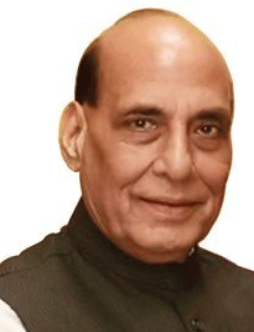New Delhi: Raksha Mantri Rajnath Singh has called for innovative approaches and enhanced cooperation among responsible nations to ensure the safety & effectiveness of United Nations (UN) Peacekeepers who are deployed in violence-hit regions to maintain stability, prevent conflicts and facilitate restoration of peace. He was addressing a special commemorative seminar, organised by the Indian Army, to celebrate 75 years of UN Peacekeeping, in New Delhi on June 13, 2023.
Shri Singh highlighted the fast-evolving challenges being faced by the peacekeepers today and stressed on the need to invest more in training, technology & resources for their safety and productivity. He also advocated for meaningful participation of women in peacekeeping operations, emphasising that their unique contribution during missions in conflict-affected areas must be recognised.
The Raksha Mantri reiterated the necessity to make the UN decision making bodies, including the Security Council (UNSC), more reflective of demographic realities of the world. “When India, the most populous nation, does not find a seat as a permanent member of the UNSC, it tends to undermine the moral legitimacy of the UN. Therefore, the time has come for making the UN bodies more democratic and representative of the current realities of our age,” he said.
Shri Singh commended the role of UN peacekeeping operations and explained the enthusiastic global support for such missions through the economic concept of ‘externalities’.
“When there is a conflict, it is harmful to the directly involved actors. Moreover, it has negative externalities for those involved indirectly. There is a plethora of negative externalities that have emanated out of the recent Russia-Ukraine conflict. It has led to food crisis in various African & Asian countries and has fueled an energy crisis in the world. A conflict at a particular place or region creates ripple effects which adversely impact the whole world. So, the rest of the world becomes a stakeholder in resolving the conflict and to restore peace. This is because peace has positive externality. When conflicting parties restore peace, they benefit in terms of human lives saved, higher economic growth achieved, etc. The rest of the world also benefits as peace fosters stability and encourages economic growth,” the Raksha Mantri said.
Shri Singh added that the positive externality of peace and negative externality of war drives the UN, along with the responsible nations, to act towards resolving any conflict. This action is manifested in terms of deployment of UN peacekeeping missions in conflict zones, he said.
India has a rich legacy of contribution to UN Peacekeeping operations and is one of the largest contributors of troops. It has contributed approximately 2.75 lakh troops to peacekeeping missions so far, with around 5,900 troops currently deployed in 12 UN missions. Since its first commitment in Korea in 1950, Indian troops have supervised complex, unmanageable peace operations, earning universal admiration for their professional excellence.
The Raksha Mantri expressed gratitude to all the Indians who have served or are currently serving as UN peacekeepers. “Our courageous soldiers, police personnel and civilian experts have demonstrated exceptional dedication and unwavering commitment to the cause of peace. They have selflessly served in some of the most challenging and dangerous environments, embodying the spirit of peacekeeping and upholding the principles enshrined in the UN Charter. Their unwavering commitment, professionalism and sacrifices inspire us all,” he said.


